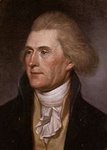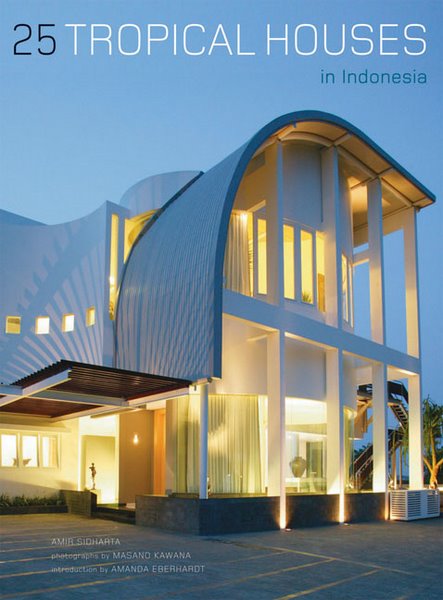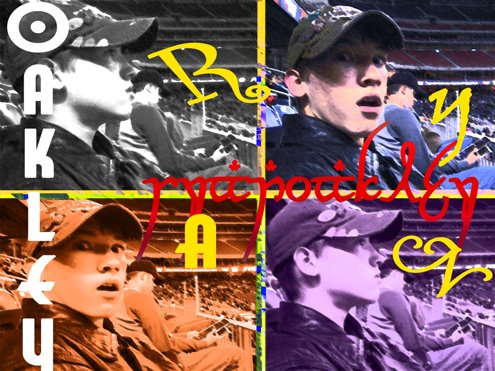
Thomas Jefferson
From Wikipedia, the free encyclopedia
Thomas Jefferson
3rd President of the United States
In office
March 4, 1801 – March 4, 1809
Vice President(s) Aaron Burr (1801–1805),
George Clinton (1805–1809)
Preceded by John Adams
Succeeded by James Madison
2nd Vice President of the United States
In office
March 4, 1797 – March 4, 1801
President John Adams
Preceded by John Adams
Succeeded by Aaron Burr
1st United States Secretary of State
In office
September 26, 1789 – December 31, 1793
President George Washington
Preceded by None
Succeeded by Edmund Randolph
Born April 13, 1743
Shadwell, Virginia
Died July 4, 1826 (aged 83)
Charlottesville, Virginia
Nationality American
Political party Democratic-Republican, Whig
Spouse Martha Wayles Skelton Jefferson
Occupation Lawyer, Farmer (Planter)
Religion Deist
Signature Thomas Jefferson's signature
Thomas Jefferson (13 April 1743 N.S.–4 July 1826) was the third President of the United States (1801–09), the principal author of the Declaration of Independence (1776), and one of the most influential Founding Fathers for his promotion of the ideals of Republicanism in the United States. Major events during his presidency include the Louisiana Purchase (1803) and the Lewis and Clark Expedition (1804–1806).
As a political philosopher, Jefferson was a man of the Enlightenment and knew many intellectual leaders in Britain and France. He idealized the independent yeoman farmer as exemplar of the republican virtue, distrusted cities and financiers, and favored states' rights and a strictly limited federal government. Jefferson supported the separation of church and state and was the author of the Virginia Statute for Religious Freedom (1779, 1786). He was the eponym of Jeffersonian democracy and the founder and leader of the Democratic-Republican Party, which dominated American politics for a quarter-century. Jefferson served as the wartime Governor of Virginia (1779–1781), first United States Secretary of State (1789–1793) and second Vice President (1797–1801).
A polymath, Jefferson achieved distinction as an horticulturist, architect, archaeologist, paleontologist, author, inventor, and the founder of the University of Virginia, among other roles. President John F. Kennedy welcomed forty-nine Nobel Prize winners to the White House in 1962, saying, "I think this is the most extraordinary collection of talent and of human knowledge that has ever been gathered together at the White House—with the possible exception of when Thomas Jefferson dined alone."[1]
<---Posts--->
------------------------------------------------------
Wednesday, May 16, 2007
Subscribe to:
Post Comments (Atom)













No comments:
Post a Comment